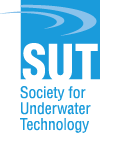Annual Report 2019-2020
Before we look back at the calendar of the West Africa Branch events, I would like to use this opportunity to thank all the presenters and industry partners for their time and efforts in bringing our range of events to realisation, and for those generous organisations who have supported the West Africa Branch.
We would not have been able to develop the range of activities and events without the support and commitment of the industry. The oil and gas industry is fundamental to our success in fulfilling the society’s mandate.
The branch attracted new academic and student members which is very encouraging. Students of the member universities have also been encouraged to sign up for SUT individual membership in that they are the future players in the offshore technology arena.
The committee remains enthusiastic, imaginative and creative, and we are strongly seeking more support and sponsorship from member organisations, industry, education and other learned societies, and we are optimistic that we will get the desired help.
The West Africa Branch’s relationship with Universities continues to be strong, with plans to establish student chapters of the local branch in Covenant University, University of Ghana, Nkwame Nkrumah University of Science & Technology, and the Bells University of Science & Technology.
We have continued our collaborative engagement with the University of Nigeria to establish the Centre for Business Skills & Data Analytics, and the Centre for Ocean Technology respectively.
The branch has also undertaken an educational initiative in partnership with the Federal University of Technology Owerri and Obafemi Awolowo University with a view to establish the Pipeline Engineering Centre and the Centre for Offshore Technology.
One of the consequences of the COVID-19 pandemic is the global fall in community prices, especially oil and gas, as a result of business stoppages and lockdown across the world. In the second week of April, oil prices slumped to arguably its lowest rate in history – $25 from $56 in February. The repercussions of this for the political economy and national revenues for oil dependent economies such as Nigeria are enormous. With poor demand for oil, marketing of oil has largely been deferred and revenue streams have collapsed creating balance of payment challenges and deep holes in public revenues. There is increasing concern on how these countries will be able to fund their budgets and respond to the public health challenges and economic recession triggered by the pandemic.
However, the West Africa Branch did manage to field in the following evening meetings before the pandemic:
- Flow Assurance – State of the Art
- Subsea Processing
- SUT presentation and Offshore IRM
Attendance for these meetings were mostly students and University lecturers. We are always grateful to all presenters and chairpersons for their time and efforts in bringing the evening meetings to fruition.
The Branch have also partnered with universities to develop new industry relevant MSc courses. These are:
- Welding Engineering
- Process Safety & Loss prevention
- ROV, Diving & Underwater Systems Engineering
- Petroleum & Subsea Engineering
- Subsea & Pipeline Engineering
- Data Science & Business Analytics (Oil & Gas)
Planned Activities
- Launch student chapters of the Local Branch
- Focus on marketing to sign up new cooperate, students and academic membership of the SUT
- Open and Operate a new Port Harcourt Offices
- Establishment of Subsea Engineering Programmes in the University of Nigeria Nsukka
- Run Subsea Engineering Course in Lagos, Port Harcourt and Accra, Ghana
- Run the Subsea Systems Integrity & Reliability Engineering Course
- Annual Dinner & AGM
